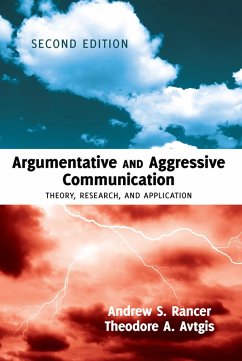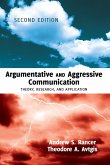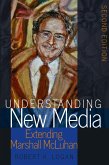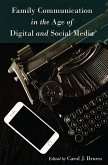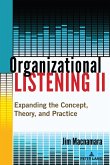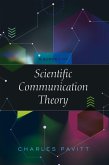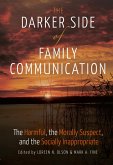Now in its second edition, Argumentative and Aggressive Communication is the only text dedicated to the presentation and synthesis of research, theory, and application efforts on the aggressive communication traits of argumentative and verbal aggressiveness.
In this updated edition, Rancer and Avtgis present new research and theory on argumentative and aggressive communication that has been influential in communication and in other social science disciplines since the first edition was published in 2006. The volume includes a discussion of new contexts in which argumentative and aggressive communication has become salient as well as new areas of research which extend into the domains of healthcare, sports, politics, digital media, and nonverbal communication. This edition includes over 100 new studies and references.
With student-friendly features such as discussion questions at the end of chapters, the text is ideal for courses in communication and conflict, interpersonal communication, communication and personality, and personality theory and research, among others. It is also an invaluable resource and reference for scholars and graduate students who conduct research on argumentative and aggressive communication.
In this updated edition, Rancer and Avtgis present new research and theory on argumentative and aggressive communication that has been influential in communication and in other social science disciplines since the first edition was published in 2006. The volume includes a discussion of new contexts in which argumentative and aggressive communication has become salient as well as new areas of research which extend into the domains of healthcare, sports, politics, digital media, and nonverbal communication. This edition includes over 100 new studies and references.
With student-friendly features such as discussion questions at the end of chapters, the text is ideal for courses in communication and conflict, interpersonal communication, communication and personality, and personality theory and research, among others. It is also an invaluable resource and reference for scholars and graduate students who conduct research on argumentative and aggressive communication.
Dieser Download kann aus rechtlichen Gründen nur mit Rechnungsadresse in A, D ausgeliefert werden.
«Written for undergraduates and researchers alike, this concise and impressive book contains adult, adolescent, long, and short versions of the Argumentativeness and Verbal Aggressiveness scales, and twelve well-written and thoroughly researched chapters. If studying these traits ever becomes a religion, this book will be its bible!» (Charles J. Wigley III, Canisius College)
«Rancer and Avtgis provide a comprehensive examination of argumentativeness and verbal aggressiveness. The breadth of contextual explorations and the depth with which they capture the nature and application of these constructs are impressive, making this book an essential resource handbook for students and scholars alike.» (Rachel DiCioccio, University of Rhode Island)
«Rancer and Avtgis provide a comprehensive examination of argumentativeness and verbal aggressiveness. The breadth of contextual explorations and the depth with which they capture the nature and application of these constructs are impressive, making this book an essential resource handbook for students and scholars alike.» (Rachel DiCioccio, University of Rhode Island)

